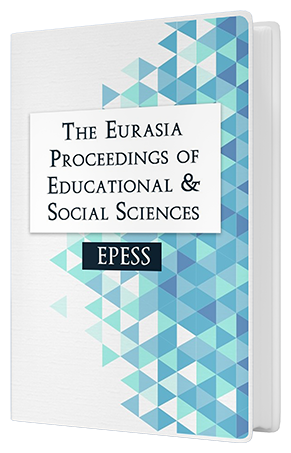Parent Groups Established with Instant Messaging Applications for Math Lessons During Covid-19: Parents' Opinions
DOI:
https://doi.org/10.55549/epess.1192358Keywords:
WhatsApp, Parent groups, Mathematic lesson, Instant messaging applicationsAbstract
It is known that communication between parents and instructors has decreased significantly due to the lockdowns and distance education implemented due to Covid19. This shortcoming is being attempted to be remedied via instant messaging applications. Therefore, the purpose of this study is to learn what parents' opinions are of parent groups that math teachers have created using online instant messaging applications like WhatsApp, Bip, Telegram, etc. during the Covid-19 pandemic. Semi-structured interviews were used to collect data for the study, which was planned as a case study, and content analysis was used to analyze the data. Five male and five female parents of secondary school-aged children make up the study group, they were chosen using the criteria sampling method. The parent groups created using instant messaging applications are commonly used for announcements, homework, homework controls, the distribution of course materials, video URLs, reminders, and the delivery of lesson URLs and passwords for online courses. Students in certain groups also sent mathematics questions to the parent groups, where the problems were answered by the students' teachers. Although it is clear that these groups are helpful for parents in general, there are some drawbacks, including teachers' loss of interest in the groups towards the end of the school year, concerns about security of personal information, late-night messages, and unnecessary talks.Downloads
Published
Issue
Section
License
Copyright (c) 2022 The Eurasia Proceedings of Educational and Social Sciences

This work is licensed under a Creative Commons Attribution-NonCommercial-ShareAlike 4.0 International License.
The articles may be used for research, teaching, and private study purposes. Any substantial or systematic reproduction, redistribution, reselling, loan, sub-licensing, systematic supply, or distribution in any form to anyone is expressly forbidden. Authors alone are responsible for the contents of their articles. The journal owns the copyright of the articles. The publisher shall not be liable for any loss, actions, claims, proceedings, demand, or costs or damages whatsoever or howsoever caused arising directly or indirectly in connection with or arising out of the use of the research material. All authors are requested to disclose any actual or potential conflict of interest including any financial, personal or other relationships with other people or organizations regarding the submitted work.




